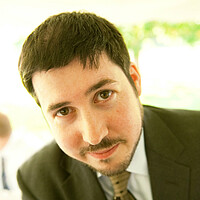Adoption competency training: A new goal for mental health professionals
Loading...
Adoption can heal lives and create happy families. But adoption also brings with it a host of potential challenges. Cross-racial adoptions can prompt complicated discussions of identity. Prior maltreatment of adoptees (by birth or foster parents) can create a host of behavioral and/or emotional problems. And building a truly blended family can be a truly Herculean task.
Mental health professionals who treat patients for issues surrounding adoption need specialized training and certification, argues a new report.
"It's something a lot of people want, and a lot of people are looking for, and they simply can't find it," says Adam Pertman, Executive Director of the Donaldson Adoption Institute. "Unfortunately people sometimes find mental health professionals who mean well, but their lack of knowledge leads them to do more harm than good - and that's a problem."
"I've had a psychiatrist tell me: 'Well, I know adoption issues because I've treated three or four adoptees over the past few years,'" says Pertman. "Well, I sure hope they were typical; I sure hope you can extrapolate from what you learned from them for everybody!"
The Donald Adoption Institute's report, "A Need to Know: Enhancing Adoption Competence Among Mental Health Professionals" is aimed squarely at those in the profession. Pertman explains that while there are a number of programs aimed at teaching mental health care professionals about counseling adoptees and adoptive families, there is a need to get psychologists, psychiatrists, and social workers talking about the need to study up on the issue.
"We understand what's needed, we're starting to build it, but until we build sufficient demand, it won't do the good that it should," says Pertman. "I'm hoping professionals will take this to heart and blog about it, put it on their pages, and start talking about - because nothing's going to happen if that doesn't."
"A Need to Know" lays out many of opportunities (such as distance education) and challenges confronting advocates of adoption competency training. Pertman views the problem as profound enough that, he argues, it should move beyond continuing education into the core of education for health care professionals, so that as they begin their careers they start with an awareness of the unique challenges. Changing attitudes about adoption and how it's discussed, he argues, are a golden opportunity to change the way mental health care professionals are trained.
"I trace a lot of this [lack of adoption training] to the secrecy and stigma that was attached to adoption for generations," says Pertman. "You don't teach teachers or mental health professionals about things you don't want to talk about. Now we're getting to a place where we're talking about it, and that's really good."






